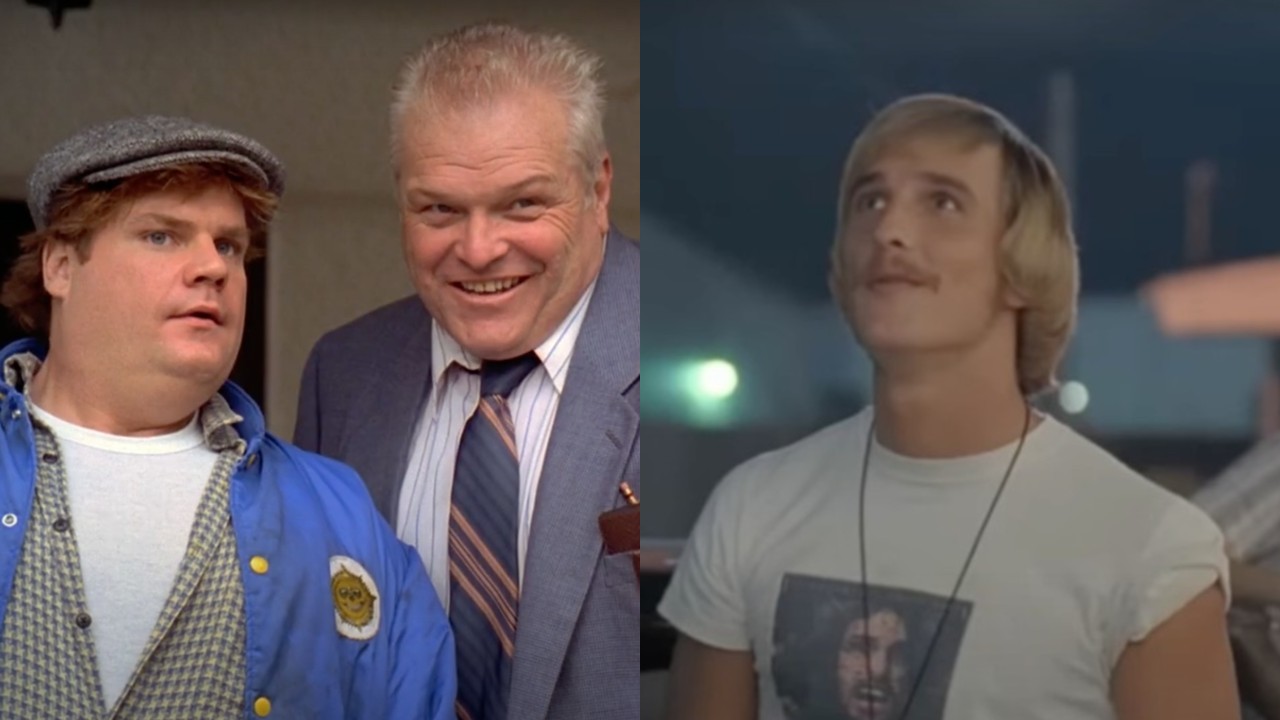Margin Call is set right before we went over the most recent financial cliff (in 2008) when some members of a Wall Street investment bank realize it will be over for them very, very soon. It’s not a thriller, or a morality tale. It’s not a docu-drama, or a satire. It’s a movie about an investment bank that realizes it will be over for them very, very soon. That’s it. Plus, good acting. One thing you should keep in mind when you watch a movie like Margin Call is that during the Great Depression (the real one, in the 1930s), the unemployment rate was twenty-five percent. Twenty-five percent! As much as we’d like to think it’s never been this bad, it’s been worse. As the CEO of an unnamed investment bank, Jeremy Irons says much the same thing while he eats a steak after ordering the firing of most of his employees and the screwing of most of his customers. Welcome to Wall Street!
Set in one 24-hour period after this investment bank (Lehman Brothers?) realizes, thanks to the work of one fired analyst (Stanley Tucci) and one whiz kid (Zachary Quinto), that they probably only have a few more days before their bad assets (subprime mortgages aren’t stated directly but strongly implied) bring them down. The executive management team -- Irons, Simon Baker, Demi Moore, Kevin Spacey, Paul Bettany, and one of the correspondents from The Daily Show [That'd be Aasif Mandvi - Ed.], try to figure out what to do. Of course, there isn’t a lot of tension in that fact. They’re going to try to shift the loss onto someone else. In the process, they are going to figure out ways that they can all still come out of this with an obscene amount of money.
The problem is that the movie is almost completely devoid of tension. Everyone caves in for the bucks, but it’s not like we don’t already know that many people is nice suits with nice cars don’t have much in the way of ethics. In their own way, both Spacey’s salesman and Tucci’s risk manager briefly put morals before dollars, but not for long, and since the suckers are unseen (and also big greedy banks) it’s not like we much care that they are being screwed. It’s also hard, although Quinto occasionally tries to explain to others exactly what’s up, to figure out exactly how this happened or what is happening to bring it all down. So mostly it’s people in offices having conversations about things you don’t fully understand.
So why watch this thing? That’s actually a good question. Look at the cast list and you realize the acting is going to be fantastic, and it is. Plus, first-time writer/director J.C. Chandor should be commended for not tossing in a ridiculous hero situation or a moralizing speech. It would ring false and this movie mostly has the ring of truth, but with no hero, no tension, no goal, it’s a movie that exists mostly to watch some good actors in some scenes that don’t always make sense.
Margin Call made almost no money in the theater despite positive reviews and a great cast. After watching it, I can understand why. It’s hard to determine who the audience is or what they would get out of it. I grudgingly recommend it based on the acting and the conviction of its principles to go for realism over false heroism (although there is a dead dog, so shame on director Chandor for that). Despite its quick death at the box office (although it’s actually still playing at a theater near my house), Margin Call gets a few extras on DVD to make it worth watching for anyone interested in good acting, the financial crisis, or how Zachary Quinto looks without hero powers or Spock ears.
Writer/director J.C. Chandor and producer Neal Dodson (Quinto was another producer but isn’t a big player in the extras) provide an informative commentary. There are the usual “so in so is such a great actor” comments, but there is also a lot of specific information about the locations, problems, and some of the background actors. It’s just good inside information that tells you more about making a relatively high-powered (actor wise) movie on a small budget. Worth a listen.
There are two deleted scenes, lasting about five minutes total. Chandor and Dodson provide an optional commentary on both. The first shows Quinto getting coffee and running into an old girlfriend (played by Meryl Streep’s daughter), and the nice moment that is shared between the two of them. Chandor says it was cut due to how badly it was shot, but it looks okay and would have humanized the story a bit more. The other scene involves Jeremy Irons giving a pep talk to some of the troops right before they start to screw all their customers. He’s perfectly self-righteous, but it covers the same ground as some other scenes so cutting it makes sense.
The other extras includes a brief featurette called “Revolving Door: The Making of Margin Call.” It’s pretty typical, although it includes an interview with J.C. Chandor’s father who worked as a trader at Merrill Lynch for more than 30 years and seems to be somewhat the model for the Stanley Tucci character. Everyone else talks about how it was such an awesome script they couldn’t not do it. There is also something called “Missed Calls” which feels like a gag reel but is really just some not particularly funny video from shot set-ups and the actors waiting around for shots to start. It’s only about two minutes.
I’m not sure what to say about this movie. It should be better than it is? Good performances, interesting camera work, important subject matter, and adherence to realism over movie-type actions all work in its favor, but it’s just sorta there. It doesn’t push you or enlighten you and the extras are nice but not special. I’d say check it out but don’t say I didn’t at least warn you it might be underwhelming.
Netflix’s Avatar: The Last Airbender Will Feature A Toph Who’s ‘Slightly More Feminine’ Than Her Cartoon Counterpart, And I Have Mixed Feelings
Tommy Boy's Director Recalled Matthew McConaughey's Audition For The Movie And How He Filmed It In A 'Room Filled With Mouse S---'
'What The F--k? Of Course We Are.' Marvel Apparently Was Not So Enthusiastic About Florence Pugh Pulling A Tom Cruise And Jumping Off A Building











